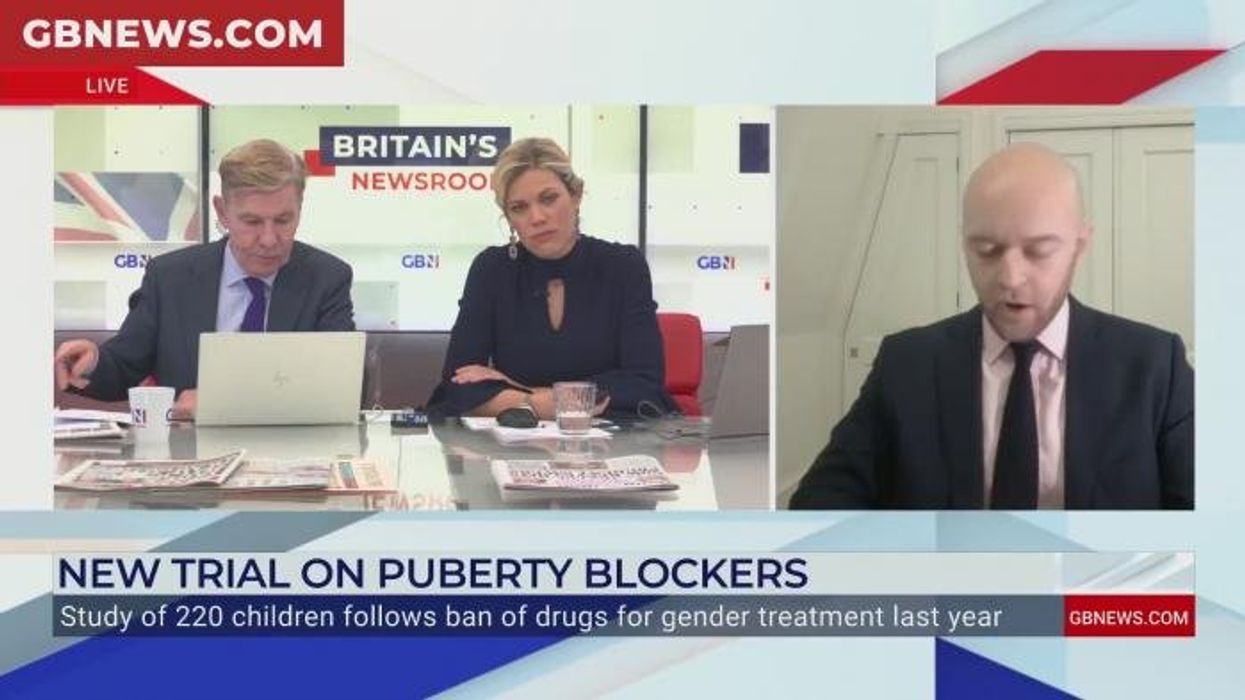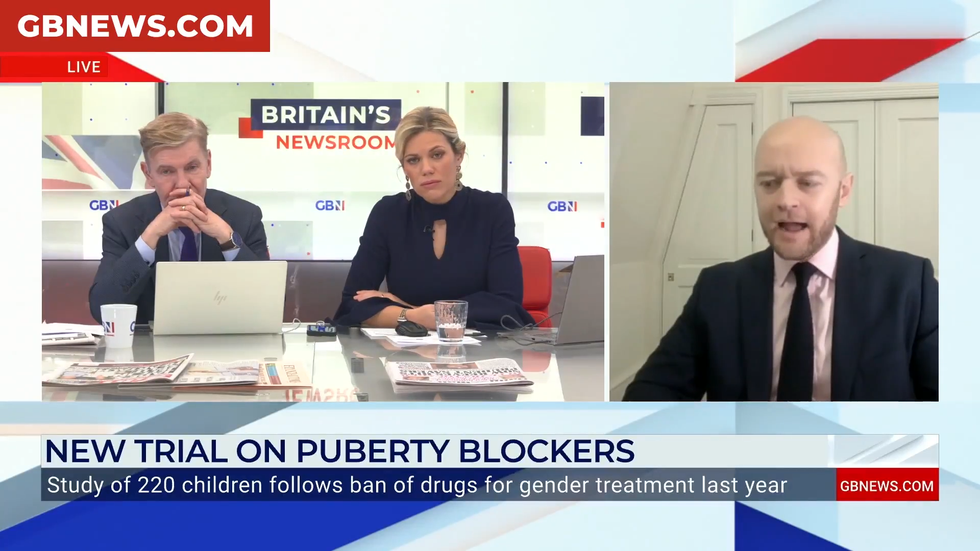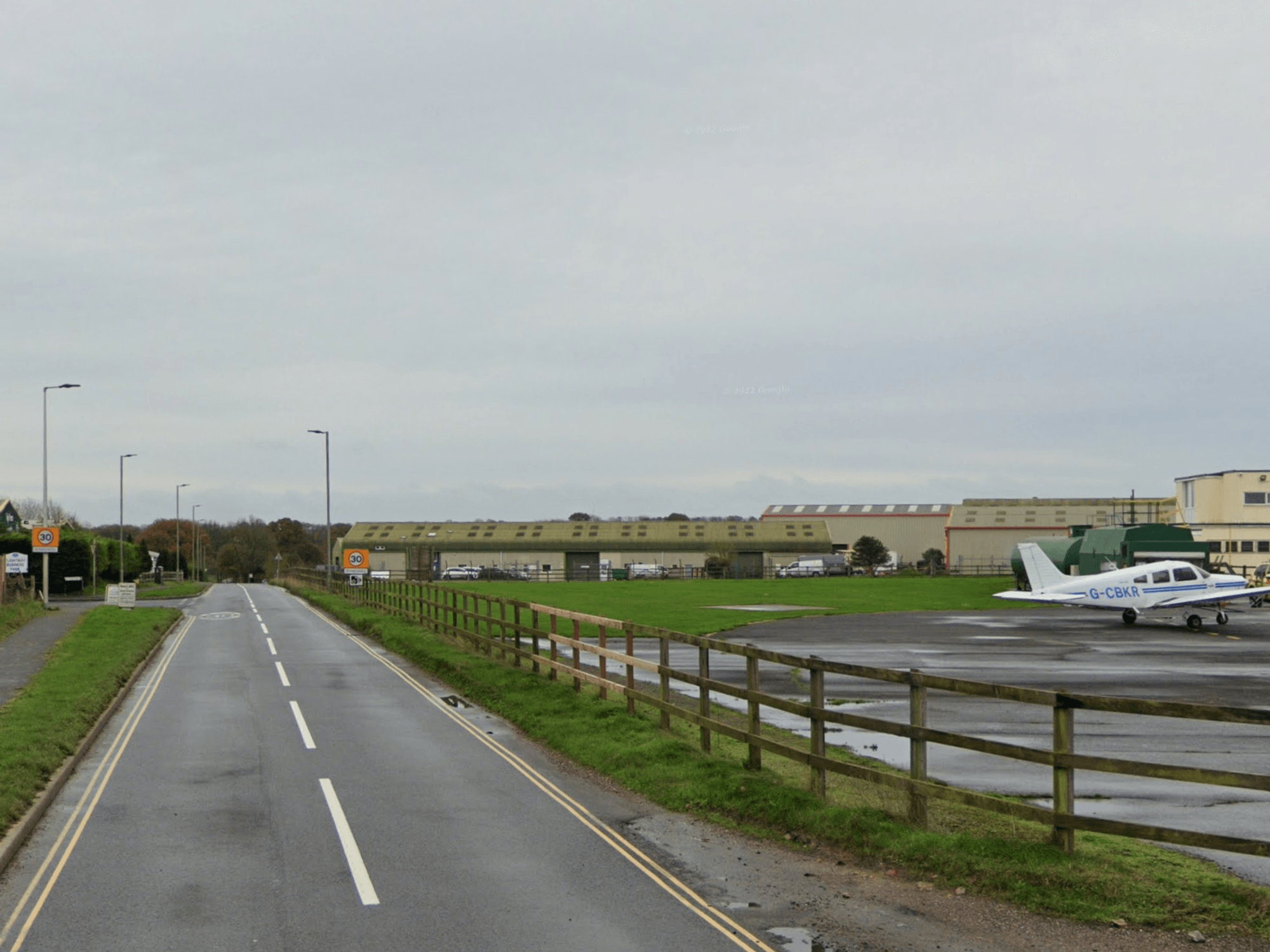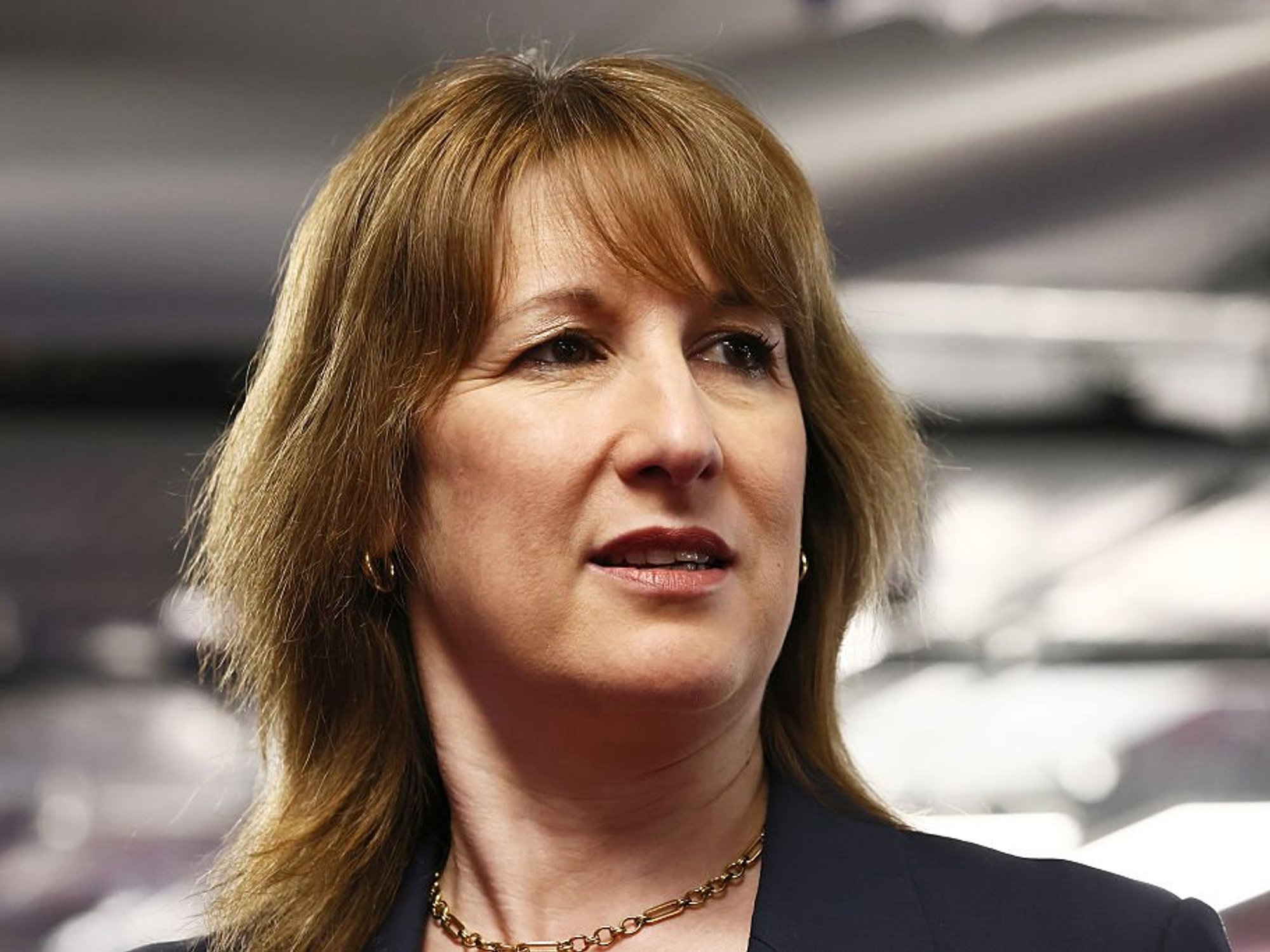Labour MP blasts ‘morally wrong’ puberty-blocker trial as ‘shameful experiment’ in heated GB News rant

Labour MP blasts puberty-blocker trial as ‘morally wrong’ and ‘shameful experiment’ in heated GB News rant |
GB NEWS

The NHS has decided to proceed with testing puberty-suppressing drugs on young people
Don't Miss
Most Read
Trending on GB News
The planned puberty blocker trial has been slammed as "morally wrong" and a "shameful experiment" by Labour MP Jonathan Hinder during an appearance on GB News.
The MP didn't hold back in his criticism, saying he was "absolutely staggered" that the trial had received ethical approval.
He branded the upcoming research as a "shameful" state-sanctioned experiment on children who are medically well.
"I think it's morally wrong, and I'm absolutely staggered that it's got through any sort of ethics committee or panel," Mr Hinder told GB News.
TRENDING
Stories
Videos
Your Say
He added: "I said this on the back of the Supreme Court judgment that we were doing so well in breaking down gender stereotypes in this country.
"We can have boys who like to play with Barbies, and we can have girls who like to play football, and that's great.
"You don't need to live within the confines of those gender stereotypes. What this says is that actually, that's all important, and a 10 or 11-year-old can actually reasonably consent to having their normal biological development being stopped.
"I think that is wholly unethical. It is immoral. And I'm absolutely astonished that I'm sitting here talking about a state sanctioned trial of this.

Labour MP Jonathan Hinder hit out at the trial
|GB NEWS
"Starting in the new year, it is wholly wrong. We have seen what happened with the Tavistock Clinic that was not out in the open in the way that it should have been.
"It was a scandal. And now to have it being sanctioned by the state that, yes, primary school children who are perfectly well and there is no physical problem with their body, we are going to experiment on you by stopping you from developing as you normally would. I think it's shameful."
The Labour MP's passionate intervention comes as controversy swirls around the NHS's decision to proceed with testing puberty-suppressing drugs on young people.
The controversial Pathways trial is set to begin in January 2026, involving 226 young people under 16 who have been diagnosed with gender incongruence.
LATEST DEVELOPMENTS

The controversial Pathways trial is set to begin in January 2026
| GETTYResearchers at King's College London will lead the study, which aims to examine how puberty-suppressing drugs affect quality of life, mental health, and physical wellbeing.
To take part, children must have reached puberty and experienced a persistent desire to be a different gender from their birth-assigned sex for at least two years.
They'll be split into two groups - one receiving treatment immediately while the other waits 12 months before starting.
Participants will be monitored every three months for two years, with annual follow-ups continuing throughout the study period.
The trial follows December 2024's indefinite ban on puberty blockers for under-18s, meaning these drugs can now only be prescribed as part of approved research.
The ban on puberty blockers came after paediatrician Hilary Cass's major review found the evidence supporting their use was extremely weak.
Her April 2024 report revealed that some children experienced more harm than benefit from the treatment.
"My review uncovered a very weak evidence base for benefits from the use of puberty blockers for children and young people with gender dysphoria," Ms Cass explained.
She noted that despite some families and clinicians believing strongly in the drugs' benefits, a proper trial was the only way to resolve the uncertainty.
The December 2024 ban means gonadotropin-releasing hormone analogues can't be prescribed to under-18s outside of clinical trials.
This followed an emergency prohibition earlier that year, with concerns about insufficient evidence regarding the drugs' effects on young people driving the decision.
More From GB News










